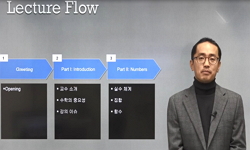Japan succeeded in consolidating the ground for the colonial rule of Korea by obtaining it as its Protectorate after the victory in the Russo-Japanese War. However, even then, Japan continued to embellish its intention toward Korea as to assist the ad...
http://chineseinput.net/에서 pinyin(병음)방식으로 중국어를 변환할 수 있습니다.
변환된 중국어를 복사하여 사용하시면 됩니다.
- 中文 을 입력하시려면 zhongwen을 입력하시고 space를누르시면됩니다.
- 北京 을 입력하시려면 beijing을 입력하시고 space를 누르시면 됩니다.
https://www.riss.kr/link?id=A76161747
- 저자
- 발행기관
- 학술지명
- 권호사항
-
발행연도
2006
-
작성언어
Korean
-
주제어
러일전쟁 ; 식민 ; 식민지 ; 합병 ; 경영 ; 식민주의 ; 문명 ; 日?? ; 植民 ; 植民地 ; 合? ; ?? ; 植民主? ; 文明 ; The Russo-Japanese War ; colonization ; colony ; annexation ; management ; colonialism ; civilization
-
등재정보
KCI등재
-
자료형태
학술저널
- 발행기관 URL
-
수록면
177-203(27쪽)
- 제공처
- 소장기관
-
0
상세조회 -
0
다운로드
부가정보
다국어 초록 (Multilingual Abstract)
The changes in Japan's discourse on Korea in the aftermath of the Russo-Japanese War can be summarized into two points. The first is the appearance of the discourse on the colonial rule over Korea. Although Japan had developed a variety of colonial discourse since the 1890s, it was only after the Russo-Japanese War that it considered Korea in terms of colonization. Many in Japan argued that Korea had already become its colony and poured their attentions to such issues as Korea's place III Japanese colonial empire and the specificities of colonial rule. In short, Japan fixated Korea as its colony not only in political terms but also in the realm of public discourses.
The second point is that Japanese version of popular colonialism was borne out of the mixture of Japan's claim of its leadership in Korea's advancement of civilization and the realities of Korea's colonization. Since the opening of Korea in 1876, Japan had emphasized Korea's need for the advancement of civilization as the chief ground for its interference. By the time of the Russo-Japanese War, Japan argued that Korea was innately lack of independent progress. Many in Japan urged its people to actively involve themselves for the sake of Korea's civilization. It was argued that any involvement by ordinary Japanese were to contribute to the welfare of colonial Korea. The colonial rule of Korea became the obligation not only of those in the government but of the Japanese in general. In short, Japan's discourse on Korea after the Russo-Japanese War began to give birth to popular colonialism in Japan.
Japan succeeded in consolidating the ground for the colonial rule of Korea by obtaining it as its Protectorate after the victory in the Russo-Japanese War. However, even then, Japan continued to embellish its intention toward Korea as to assist the advancement of civilization. This article examined the changes in the way Japan perceived Korea with Japan's de facto colonization of Korea after the war.
The changes in Japan's discourse on Korea in the aftermath of the Russo-Japanese War can be summarized into two points. The first is the appearance of the discourse on the colonial rule over Korea. Although Japan had developed a variety of colonial discourse since the 1890s, it was only after the Russo-Japanese War that it considered Korea in terms of colonization. Many in Japan argued that Korea had already become its colony and poured their attentions to such issues as Korea's place III Japanese colonial empire and the specificities of colonial rule. In short, Japan fixated Korea as its colony not only in political terms but also in the realm of public discourses.
The second point is that Japanese version of popular colonialism was borne out of the mixture of Japan's claim of its leadership in Korea's advancement of civilization and the realities of Korea's colonization. Since the opening of Korea in 1876, Japan had emphasized Korea's need for the advancement of civilization as the chief ground for its interference. By the time of the Russo-Japanese War, Japan argued that Korea was innately lack of independent progress. Many in Japan urged its people to actively involve themselves for the sake of Korea's civilization. It was argued that any involvement by ordinary Japanese were to contribute to the welfare of colonial Korea. The colonial rule of Korea became the obligation not only of those in the government but of the Japanese in general. In short, Japan's discourse on Korea after the Russo-Japanese War began to give birth to popular colonialism in Japan.
목차 (Table of Contents)
- 서론
- Ⅰ. 러일전쟁과 한국식민론의 전개
- Ⅱ. ‘식민지’ 한국과 식민주의적 문명론
- 결론
- 〈Abstract〉
- 서론
- Ⅰ. 러일전쟁과 한국식민론의 전개
- Ⅱ. ‘식민지’ 한국과 식민주의적 문명론
- 결론
- 〈Abstract〉
동일학술지(권/호) 다른 논문
-
- 동양사학회
- 李晟遠(Lee Sung-won)
- 2006
- KCI등재
-
- 동양사학회
- 洪承賢(Hong Seng-Hyun)
- 2006
- KCI등재
-
- 동양사학회
- 金宗燮(Kim Jong-Seob)
- 2006
- KCI등재
-
- 동양사학회
- 鄭哲雄(Chung Chul-Woong)
- 2006
- KCI등재





 DBpia
DBpia







